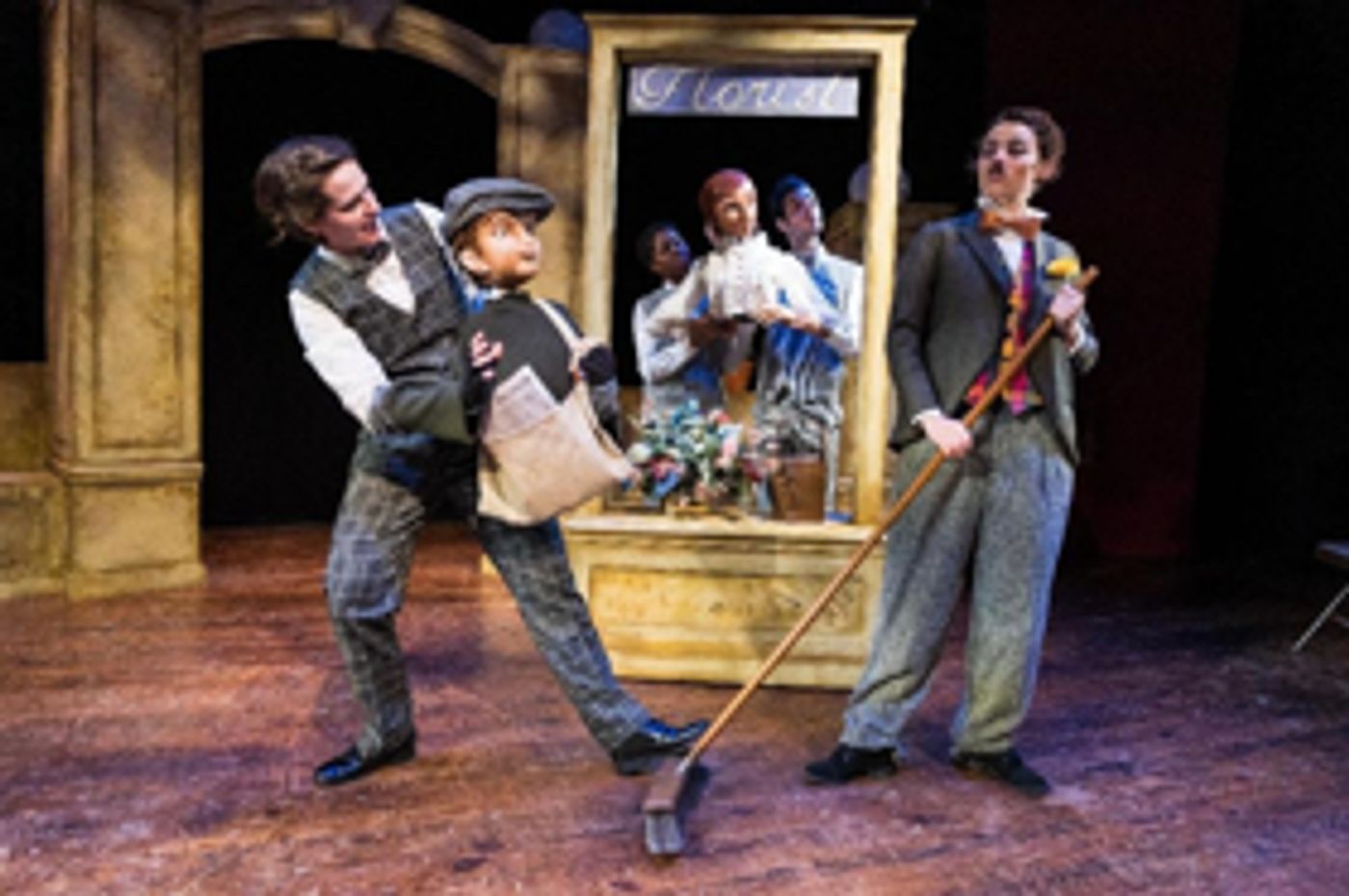Review: Spirit of Chaplin Lives in VISIONS OF LOVE by Pointless Theatre

By 1931, technology had advanced enough to allow Charlie Chaplin to make his latest film, "City Lights," as a talkie. But why would he? By then, he had mastered his singularly poetic choreography that universally communicated comedy without need for language. Further, he could use advancements in sound to take control of the musical accompaniment. If individual theaters had erratic success in accompanying his films music, now they were not only uniform, but using a full score he composed himself - another Chaplin talent that flowered.
It all served to creating a singular experience from the relentless and sometimes poignant physical comedy revved up by the emotions of the music.
Recreating what many feel is Chaplin's masterpiece on a small stage with a limited cast and puppets is the daunting task of the Pointless Theatre, a company name that doesn't serve them well in describing an effort that's not pointless at all.
For some reason, they've renamed the whole thing "Visions of Love," calling it "an original adaptation of Charlie Chaplin's 'City Lights.'" But it's pretty much the same thing. Tied closely to the original recording of Chaplin's soundtrack, it even has the exact running time. One even looks forward to the recreation of certain gags and turns of plot.
Imitating Charlie Chaplin's looks, manner and quirks is not only difficult, it's been done for generations; it's tough to break through the expected mustache-twitching, cane-twirling stereotypes. But Kerry McGee does a remarkable job as The Tramp (even if her crisp suit fails to look laggy enough). It's like she's dived into the silent screen and came out with his rich comic soul, a poignant sentimentalist who when cornered can also fight like heck.
Opposite her, Sharalys Silva is radiant as the blind flower seller, who mistakes the Tramp for a wealthy man who is capturing her heart. In between them are the many barriers of life that keep them apart. First off is the drunken millionaire bent on suicide; in the film he wanted to fling himself in the river; in the adaptation he has a gun. Inebriated, the man embraces the Tramp as a best friend; sober, he doesn't recall him at all and has him thrown out of his mansion.
At first it seems unnecessary for the millionaire to be represented by a life-size puppet - especially as it takes two operators to walk behind and control the movements of the figures rendered from the waist up. For a small company, who use two people when you could use one?
But the puppet designs by Alex Vernon are so artful and evocative - they resemble figures from pre-cubist Max Weber paintings - that they're a big addition to the production. And they are so skillfully operated by the rest of the ensemble - Vanessa Chapoy, Lee Gerstenhaber, Jon Reynolds, Erin Stevenson and Scott Whelen - that many of them, especially the butler and a bratty newsboy, seem like flesh and blood characters.
But eyes are most always on McGee and the Chaplin turns that include a memorable boxing sequence fastidiously replicated by director Matt Reckeweg, for whom "City Lights" is a comic masterpiece set to sweeping music and meant to be choreographed as dance. It's amusing to see the occasional title cards pop up as they did in the film, with the most limited bits of dialogue. But it takes a moment to get that the little strollers that citizens use are actual cars, behind which those who push their handle are drivers, and those pretending to climb in behind them are passengers. And its odd that the Tramp is hit with pantomime water at one point, though soaked with actual liquid from a Gin later.
But there is so much of the film that comes to literal life, these small bumps in translation are soon forgotten. Especially as the story reaches its climax - one that was so emotionally walloping in the film 89 years ago, James Agee called it "the greatest single piece of acting ever committed to celluloid." Imagine what that could be live. In "Visions of Love," it is a vision indeed.
Running time: One hour.
Photo credit: Lee Gerstenhaber, Eirin Stevenson, Scott Whalen, Kerry Mcgee in "Visions of Love" Photo by DJ Corey Photography.
"Visions of Love" by the Pointless Theatre Company, continues at the Dance Loft on14, 4618 14th St NW, through Feb. 9. Tickets at 202-733-6321 or online.
Reader Reviews

Videos

